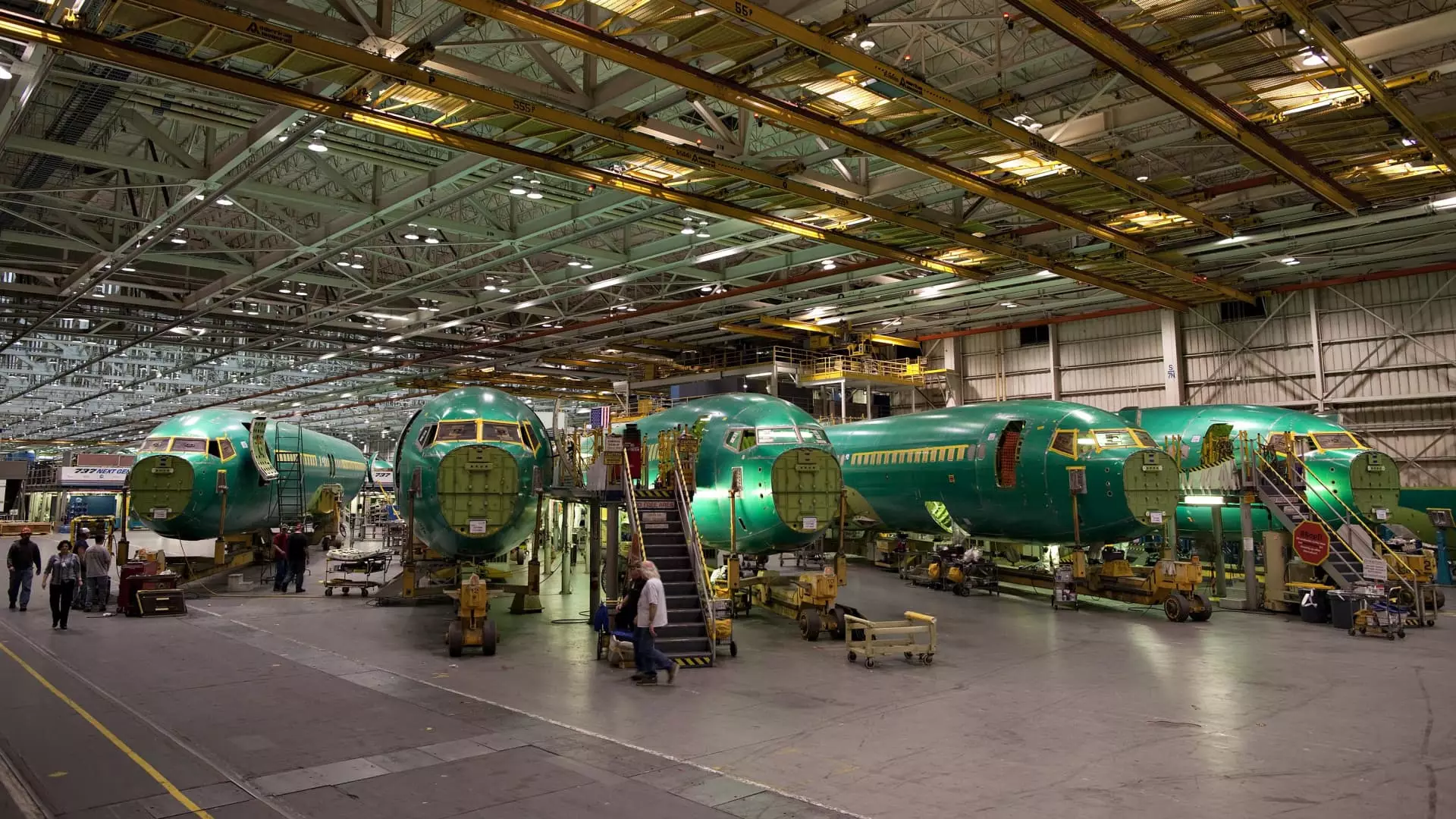Boeing’s recent decision to acquire Spirit AeroSystems, its struggling fuselage supplier, marks a significant turning point in the aerospace giant’s strategy. In an all-stock transaction valued at approximately $8.3 billion, Boeing aims to address ongoing quality control issues that have plagued its aircraft production. This acquisition, planned to finalize by mid-2025, follows a series of setbacks for Boeing, including a high-profile incident involving the Boeing 737 Max 9, which temporarily grounded its reputation and production capabilities. By integrating Spirit into its operations, Boeing seeks to streamline its manufacturing process and enhance safety standards that have come under scrutiny from regulators and the public alike.
The deal values Spirit AeroSystems at $37.25 per share, translating to an equity total of around $4.7 billion. This is a notable premium over Spirit’s recent closing share price of $32.87, reflecting Boeing’s commitment to not just repair its own image but also stabilize its supply chain amid the ongoing turbulence of the aviation industry. This acquisition reinforces Boeing’s dependency on Spirit, which accounted for nearly 70% of the latter’s revenues last year. However, this dependency raises questions about the sustainability of such a reliance, particularly as both companies navigate a landscape marred by financial strain and public skepticism.
Analysts have already raised concerns that this acquisition might not instantly resolve the underlying issues Boeing faces. Given Spirit’s debts and the burdens of financial mismanagement in the past, the road ahead remains uncertain. Boeing’s stock was reportedly down over 30% this year, indicating investor apprehension regarding its long-term recovery strategy.
The recent safety issues associated with Boeing’s aircraft further underscore the necessity of this acquisition. The National Transportation Safety Board’s preliminary report revealed alarming details about the accident that provoked renewed scrutiny. It has highlighted troubling lapses in quality control, such as improperly attached bolts on the Max 9, which were supposed to secure critical components of the aircraft. Other production issues included misdrilled holes and incorrectly connected fuselage panels, raising grave concerns about Boeing’s commitment to safety and quality.
Boeing’s new protocol—accepting only defect-free fuselages—merely scratches the surface of a deeper cultural overhaul needed within the company. The Federal Aviation Administration (FAA) has mandated production resets and quality assurances that Boeing must adhere to before it can scale its operations. The recent operational setbacks, coupled with ongoing regulatory oversight, indicate that even with this acquisition, Boeing must undertake substantial restructuring to restore its preeminence in the aerospace sector.
CEO Dave Calhoun, who announced plans to step down at the end of the year, emphasizes that integrating Spirit into Boeing’s operational framework is a pivotal move towards instilling a culture of quality. His strategic vision reflects an acknowledgment of the significant impacts production failures have had on Boeing’s reputation. Furthermore, the potential for Pat Shanahan, Spirit’s current CEO, to succeed Calhoun presents an opportunity to realign leadership with a focus on enhanced operational integrity.
However, as Boeing confronts the challenge of reestablishing its market standing, the company will need to earn back the trust of both regulators and customers who have expressed concerns about its safety protocols.
Despite the optimistic front presented by Boeing and the promise of future integration, the acquisition of Spirit AeroSystems represents more than just a financial maneuver; it signifies a desperate bid to rewrite Boeing’s narrative after years of crisis management. The $559 million agreement struck with Airbus for Spirit’s operations dedicated to their aircraft further complicates the transaction and speaks to the competitive pressures Boeing faces.
Ultimately, this strategic acquisition could be indicative of a broader resilience strategy aimed at redefining the aerospace manufacturing landscape. However, for Boeing to navigate the storm successfully, it must not only enhance its operational capabilities but also demonstrate a profound commitment to safety, quality, and transparency. Whether this acquisition will provide the necessary impetus for Boeing to regain its position as a leading manufacturer relies heavily on execution and the cultural shifts within the company that prioritize excellence and accountability above all else.


Leave a Reply